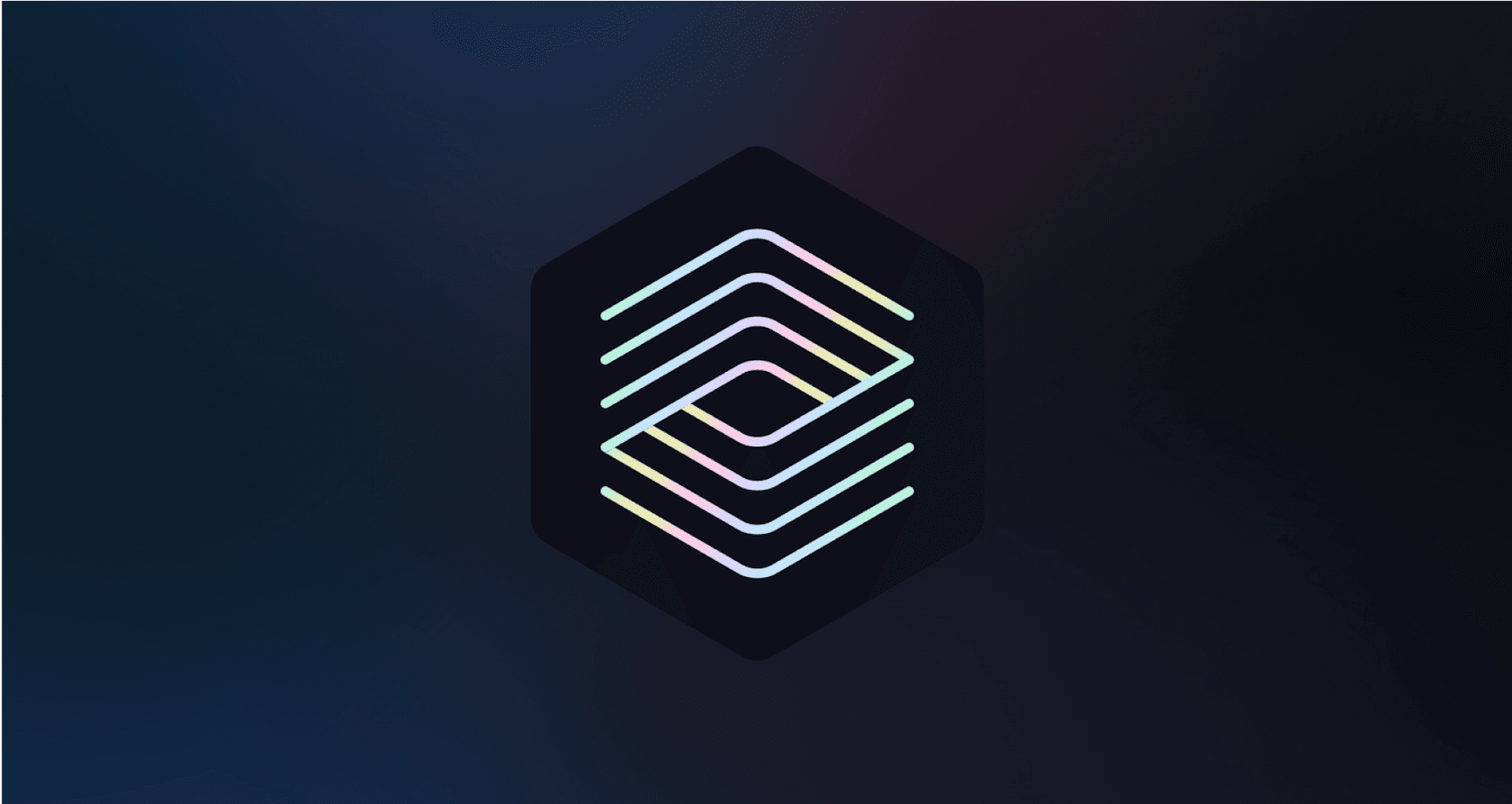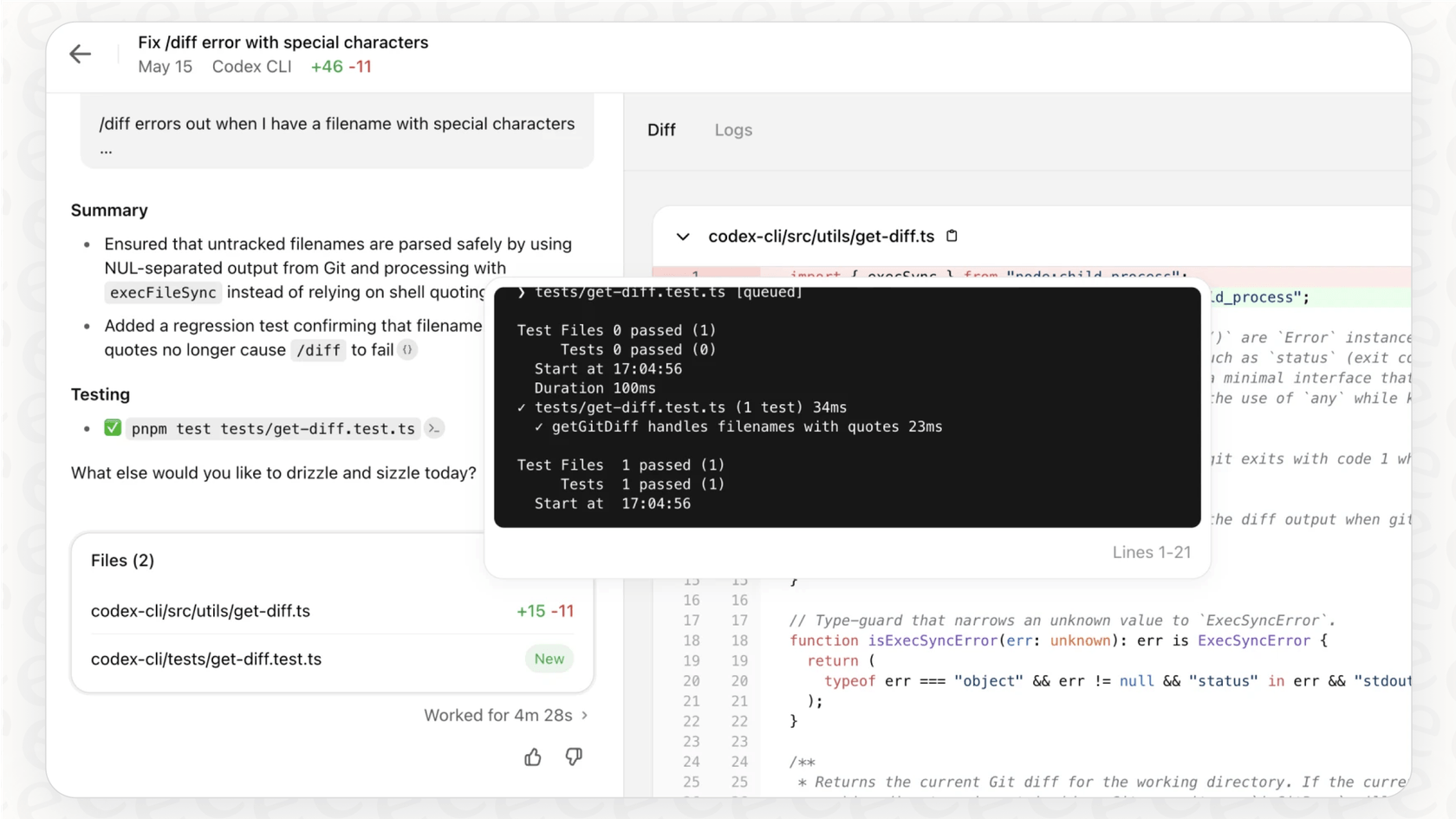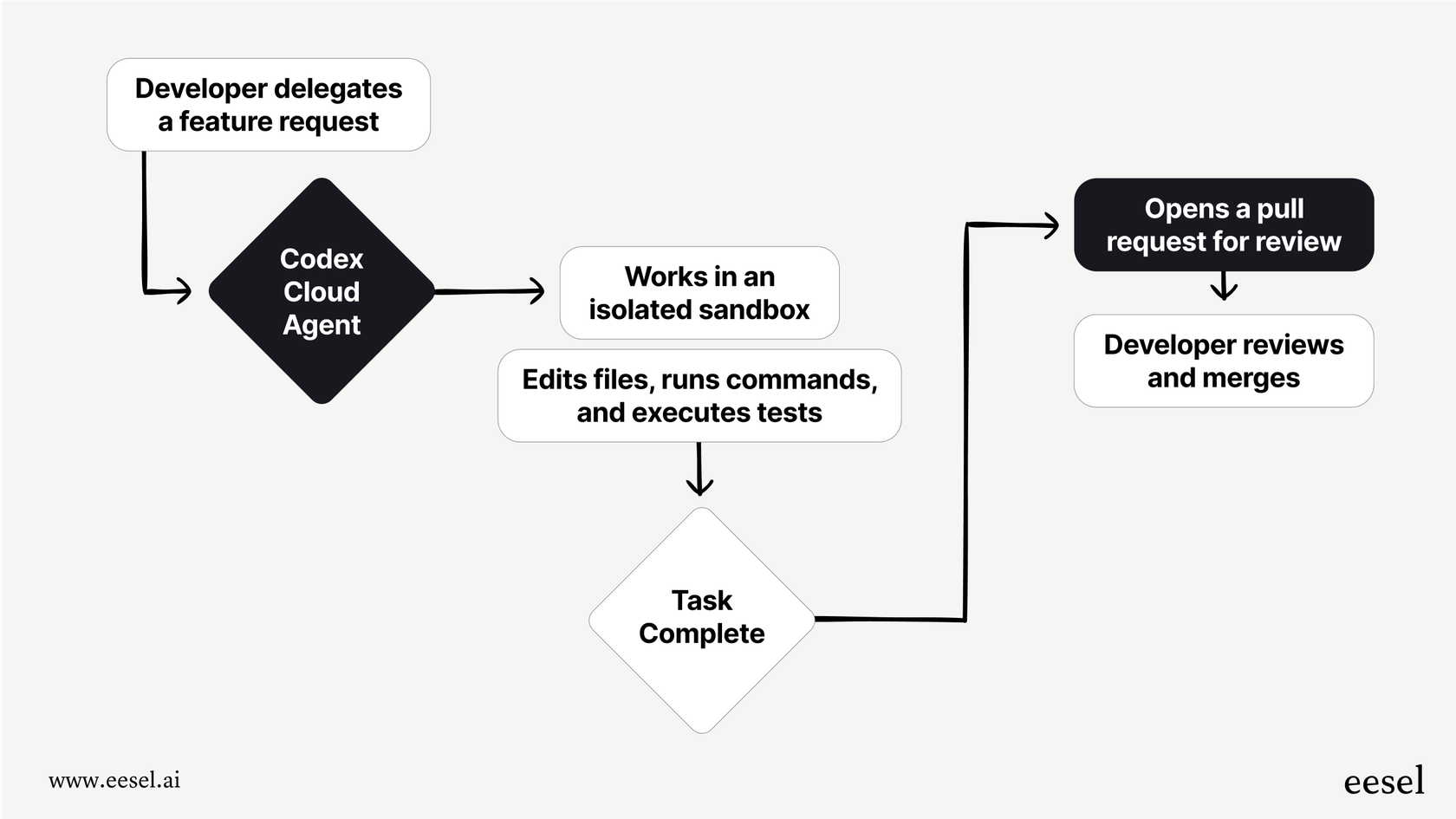
You’ve probably heard about OpenAI's Codex by now. It’s the AI that promises to be your new pair programmer, helping you write, debug, and understand code faster than ever. The idea of integrating it directly into an editor like Visual Studio Code is definitely exciting.
But what does it actually feel like to use it day-to-day? This guide gives you a straight-up look at what the OpenAI Codex integrations with VS Code really offer, how they work, and who they’re truly for. While it’s an incredible tool for developers, teams that need to automate workflows based on business knowledge (think customer support or internal Q&A) might find themselves needing something else entirely.
What is OpenAI Codex?
Put simply, OpenAI Codex is an AI model that turns your plain English requests into code. You can think of it as having an expert programmer sitting next to you, ready to help out. You can ask it to generate a new function, explain a confusing chunk of code you inherited, or clean up a script that’s gotten a bit messy.
Its main purpose is to grasp the structure and intent behind source code. It can write code from scratch, help you find bugs, and even run commands in your terminal. This capability is now part of the bigger ChatGPT ecosystem, so you access it through paid plans like ChatGPT Plus, Pro, and Business. It’s built from the ground up to live inside a development environment.
What can OpenAI Codex integrations with VS Code do?
The official extension drops the power of Codex right into your VS Code window, making it feel like a natural part of your coding routine. Let's dig into its main features.
An AI pair programmer in your IDE
Probably the biggest win is having a chat panel right next to your code. Instead of constantly switching over to a browser window, you can talk to Codex directly within your editor. It’s smart enough to read your open files and any code you highlight, which gives it the context it needs to give you relevant and impressively quick answers. You can ask it to write a new function, and it’ll generate the code for you to review and pop right into your file.

Handing off complex tasks to the cloud
For the really big jobs, you can delegate tasks to Codex to run in the background in a secure cloud environment. Let's say you need to refactor a huge part of your app or write a full suite of unit tests. You can just hand that entire task off to Codex and let it get to work. This frees you up to tackle other problems while the AI does the heavy lifting, and it’ll just ping you when it’s ready for you to take a look.

Fine-tuned control with approval modes
Codex isn’t just an on-or-off tool. It gives you some control over how much freedom you want it to have. The extension has a few different approval modes:
-
Chat: This is a safe space for just talking and planning things out. The AI won't read any files or run any commands on its own.
-
Agent: In this mode, the AI can read files, write code, and run commands, but it has to ask for your permission before it does anything. Think of it as a junior dev who needs your sign-off.
-
Agent (Full Access): This is where you take the training wheels off. The agent has full permission to do its work without asking you first. It's powerful, but you'll want to be careful with it.
You can also tweak the "Reasoning Effort" between low, medium, and high. A lower effort gets you faster, simpler answers, while a higher effort lets the AI tackle more complicated problems, though it takes more time and resources.
What it's like to use OpenAI Codex integrations with VS Code
Okay, that’s the shiny sales pitch. What's it actually like to get this thing up and running? Here’s a more realistic look at the user experience.
A developer-focused setup
Getting started isn't a one-click process. First, you have to install the official Codex extension from the VS Code marketplace. Then, you need an active paid ChatGPT subscription to sign in and get it working. If you're using Azure, the setup is even more hands-on, requiring you to manually create a "config.toml" file and set up environment variables for your API key.
It's a workflow that makes perfect sense for a software developer who's comfortable with config files and the command line. It’s not, however, designed for a non-technical support manager who just wants to automate ticket responses.
Common headaches and limitations
Once you're set up, you might hit a few snags that users have been reporting.
-
Permission problems:
 A lot of Windows users have run into an issue where the agent constantly asks for permission to read every single file, even when it's set to 'full access.' This can lead to a frustrating loop of pop-ups that gets in the way of your work and defeats the purpose of seamless automation.
A lot of Windows users have run into an issue where the agent constantly asks for permission to read every single file, even when it's set to 'full access.' This can lead to a frustrating loop of pop-ups that gets in the way of your work and defeats the purpose of seamless automation. -
The prompting learning curve: Getting good results out of Codex is a skill in itself. You can't just throw a versatile request at it and expect it to read your mind. Users often find they need to write very detailed prompts, and sometimes even create extra guide files (like "AGENTS.md") to give the AI persistent instructions and stop it from going off the rails.
-
It knows code, not your business: This is the most important limitation to understand. Codex is an expert on code repositories. It gets Python, JavaScript, and Git. What it doesn't get are the specific details of your company's internal knowledge. It can’t connect to your Zendesk account to learn from past support tickets, read your company’s Confluence wiki to answer an employee's question, or look up order details in Shopify.
While Codex is brilliant with code, what if your goal is to automate answers based on your company's specific knowledge? For that, you need a tool that was built from the start to connect to business apps. An AI like eesel AI plugs directly into your help desk, wikis, and documents, letting you launch a support agent in minutes without touching a command line or config file.
OpenAI Codex integrations with VS Code: Pricing and plans
So, how much does all this cost? Codex isn't sold as a standalone product. Its features are bundled into the premium ChatGPT subscriptions. To use the VS Code extension, you'll need one of these paid plans.
| Plan | Price (per user/month) | Key Codex Access |
|---|---|---|
| Plus | $20 | Included |
| Pro | $60 | Expanded Codex agent access |
| Business | $25 (annual billing) | Included, plus admin controls |
| Enterprise | Contact Sales | Flexible, plus enterprise-grade security |
This pricing model is centered around individual users and comes with a wide range of features, many of which are completely irrelevant for a support or IT team that just wants to automate tasks.
This per-user approach can make it tough to budget for support automation. In contrast, eesel AI offers straightforward pricing based on AI interactions, not how many people are on your team. You won't find any surprise per-resolution fees, which means your costs won't spiral out of control as your support volume increases.
OpenAI Codex integrations with VS Code vs. eesel AI: A quick breakdown
Let's make this simple: Codex is for developers who want AI help with writing code. eesel AI is for teams who want to automate support and internal knowledge sharing.
Here’s a quick comparison to make the difference crystal clear:
| Feature | OpenAI Codex in VS Code | eesel AI |
|---|---|---|
| Primary Use Case | AI-assisted code generation | Customer support & knowledge automation |
| Setup | Requires developer expertise (CLI, config files) | Radically self-serve, go live in minutes |
| Knowledge Sources | Code repositories (GitHub, local files) | Help desks (Zendesk), wikis (Confluence), docs, past tickets |
| Key Feature | Writes and refactors code | Simulates on past tickets for risk-free rollout |
| Control | Approval modes for file access/commands | Granular control over topics, customizable actions, gradual rollout |
| Pricing Model | Per-user, bundled with ChatGPT | Interaction-based, no per-resolution fees |
Choose the right AI for the job: When to use OpenAI Codex integrations with VS Code
Look, the OpenAI Codex integration with VS Code is a huge deal for software development. It delivers on the promise of an AI pair programmer that lives right in your editor, and for that specific job, it's an amazing tool.
But its power is highly specialized. When you're facing the completely different challenge of automating customer service, ITSM, or internal Q&A, you’ll get much better results with a platform that was built for that exact purpose. It will be easier to manage, more effective, and you'll see a return on your investment a whole lot faster.
This video provides a quick guide on how to set up and use OpenAI Codex integrations with VS Code to enhance your coding workflow.
Ready to see how an AI designed for your business knowledge can transform your support workflows? Get started with eesel AI for free.
Frequently asked questions
Developers benefit from an AI pair programmer directly in their IDE, offering a chat panel for context-aware code generation, debugging, and explanation. It also allows for delegating complex tasks to run in the background, improving efficiency.
Getting started requires installing the official VS Code extension and having an active paid ChatGPT subscription. For Azure users, it involves a more manual process of creating configuration files and setting environment variables, making it a setup designed for technical users.
No, OpenAI Codex is an expert primarily on code and its structures, not specific business knowledge. It cannot connect to your internal systems like Zendesk, Confluence wikis, or Shopify to learn from your company's proprietary data.
The extension offers "Chat," "Agent," and "Agent (Full Access)" modes to control the AI's permissions, from simple conversation to full autonomous operation. Users can also adjust the "Reasoning Effort" for varying levels of complexity and speed.
OpenAI Codex is not a standalone product; its features are bundled into paid ChatGPT subscriptions such as Plus, Pro, Business, and Enterprise plans. These plans operate on a per-user basis.
Users frequently report permission issues, especially on Windows, where the agent may repeatedly request file access. There's also a significant learning curve for crafting effective prompts, and the tool's primary focus remains code, not business-specific knowledge.
OpenAI Codex integrations with VS Code are purpose-built for AI-assisted code generation and development tasks within an IDE. In contrast, eesel AI is designed for automating customer support and internal knowledge sharing by connecting directly to business applications and documents.
Share this post

Article by
Kenneth Pangan
Writer and marketer for over ten years, Kenneth Pangan splits his time between history, politics, and art with plenty of interruptions from his dogs demanding attention.







